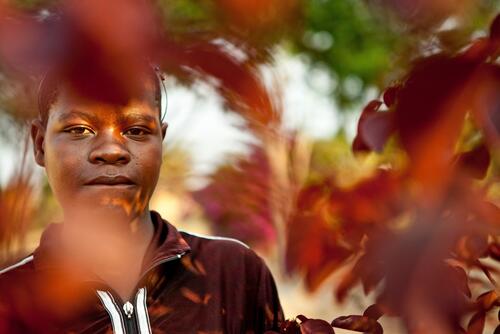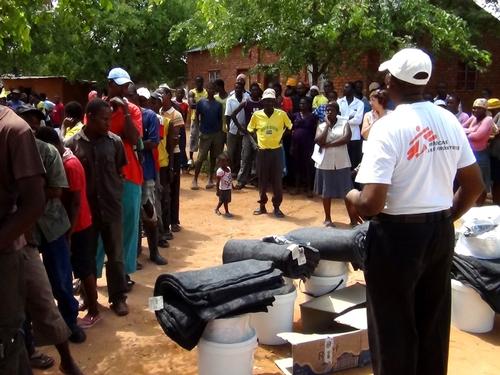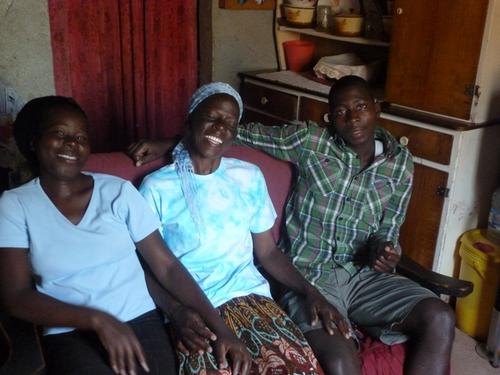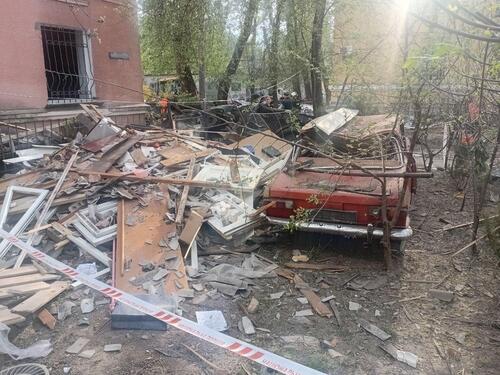Mari Carmen Viñoles and Jean François Saint-Sauveur landed in Harare, the capital of Zimbabwe in April 2009, after several previous assignments with Médecins Sans Frontières (MSF). Mari Carmen arrived to start work as general coordinator of MSF programmes, while Jean François took on the role of medical coordinator.
They talk about their experiences working in a country that is being badly hit by the HIV pandemic.
What was the situation like in Zimbabwe on your arrival?
Mari: In April 2009, the country was going through a very serious economic crisis. Many shops had closed, supplies were scant at the supermarkets. Health centres that had had to close were just beginning to quietly re-open because they had started receiving international funds to pay long overdue salaries to doctors and nurses. The health system had virtually collapsed and was struggling to pull through.
Jean François: We arrived in Zimbabwe just when the cholera epidemic that had hit the country started to subside. As for HIV/AIDS, less than 30 per cent of the people needing antiretroviral (ARV) treatment were receiving it. People were only being started on treatment when they were already in a very critical condition.
You have been in the country for more than three years now. What are the most outstanding changes you have seen? Has the situation improved for people?
Mari: There has been significant change. At a political level, there is a new Government of Unity, which, despite having failed in many things, has allowed the opposition to be part of the government. The introduction of the dollar as a currency in February 2009 stabilised the country’s economy. This has built donor trust in institutions and the ministry of health, and has helped the implementation of programmes to fight HIV.
Regarding adults in urgent need of ARV, we have gone from 30 to 80 per cent that are now receiving treatment. When we arrived in the country, ARVs were provided in fewer than 100 health centres, whereas now they are available in nearly 500. It is still not what it should be – there are around 1,500 health centres in the country – but we are moving in the right direction. Next year there will be elections, and we have to see what happens after that to be able to confirm this positive trend.
Jean François: In the past three years, there have been times when every month 8,000 people began ARV treatment. This proves the health system’s capacity to recover. It shows how much can be done with resources and the right policies. There are also things that have changed more slowly because the system in Zimbabwe is highly regulated and it takes time to translate policy into strategies that are implemented across the country.
What difficulties have you encountered in your work?
Mari: The most difficult thing was to make room for MSF as a medical and humanitarian organisation, and not to be perceived as a donor. When we arrived in the country, there was no space where MSF could work in partnership with the ministry of health and thus support it to implement better strategies that could improve the life of the patients.
Then, at a personal level, the toughest part is to see that there remains a lot to be done. AIDS is still a humanitarian emergency, and we cannot afford to slow down. In Zimbabwe over 1,200 people are dying every week!
Jean François: Creating this space has been key to being able, for instance, to work with the ministry of health on the national protocols for treating HIV/AIDS, and in this way make an impact beyond the districts where we are providing direct care.
the toughest part is to see that there remains a lot to be done. AIDS is still a humanitarian emergency, and we cannot afford to slow down. In Zimbabwe over 1,200 people are dying every week!Mari Carmen Viñoles
MSF’s work in Zimbabwe focuses on responding to HIV/AIDS. What are the most pressing humanitarian needs with regard to HIV/AIDS?
Mari: On the one hand, we have to keep putting new patients on treatment, and on the other hand, we have to keep up a good level of care for the thousands of people who are already on ARV treatment. Major progress has been made in the past years, including the decentralisation of treatment, a better drug distribution system in the country, etc., but we have to go further and ensure the quality of care. Right now, the number of people dropping out of treatment is too high, so we have to make sure this improves.
Jean François: Today, people are still dying of AIDS without having been diagnosed. This is unacceptable because we have the means to keep these people alive. In Zimbabwe there are around 1.1 million people living with HIV; 600,000 in urgent need of ARV treatment. They need to begin treatment and stick to it if they are to live. The financial global cost is high but we have to be able to maintain it. Moreover, we know that the stigma and discrimination are still posing a major problem. HIV diagnosis is no small matter.
What challenges lie ahead?
Mari: Children and teenagers are being neglected when it comes to treatment. We have a lot to do to prevent more children being born with the virus.
Jean François: The most important inequalities are seen in children. As doctors we see children living with AIDS who we should not have to see, because they should not be infected. We still lack paediatric formulations. We still lack more simplified formulations for adults (one pill a day). We need sexual and reproductive health programmes that specifically address teenagers.
In the past few years, international donors have taken a step backwards with regard to their support to AIDS programmes. This trend materialised at the end of 2011, when the Global Fund to Fight AIDS, Malaria and Tuberculosis announced the cancellation of its funding Round 11. What is the current situation like now in Zimbabwe?
Mari: Zimbabwe has been one of the less affected countries in the region by the cancellation of Round 11. A short while ago, the country received money from Round 8, a five-year round that proved to be one of the most important ones in the history of the Global Fund, and in principle the country is covered until December 2014. But in 2014 there will already be programmes starting to suffer from lack of resources if they don’t find funding elsewhere. We need to monitor the situation closely, mainly because the Global Fund is changing some of its policies and in the future it may be hard, if not impossible, the get the money that is needed.
What is the image that will stay with you from your time in Zimbabwe?
Mari: I would highlight two images. First, the support groups of mothers that have been part the programme to prevent transmitting HIV to their children. These women support other mothers living through the experience for the first time. Seeing all the voluntary work carried out by these mothers, the passion with which they speak about the programme and the miracle of giving birth to HIV-negative children, is impressive.
Second, I would choose the grandmothers. In Zimbabwe there are one million orphans due to AIDS and most of them are being cared for by their grandmothers. These 60 or 70-something ladies are sometimes taking care of seven or eight children. They have been fighting all their lives, and for them, the fight goes on. You see them arrive at the health centre, with their grandchildren in their arms, because they do not want the kids to miss a clinic. Their courage, passion and hope are life lessons.
Jean François: In wealthy countries, paediatricians working in primary healthcare often see children to vaccinate them and monitor their growth. Family doctors hardly ever see teenagers because they are healthy. But in sub-Saharan Africa, where the HIV/AIDS pandemic is hitting hardest, the paradigm is very different. Our health centres in Zimbabwe are full of children and teenagers. In Tsholotsho alone – a small rural district – we have 600 teenagers and 1.000 children on treatment, and this is just half of the number who should be. We have to adjust our strategies to these patients. These infections, resulting from the lack of prevention, cannot be accepted. We cannot normalise a situation that is not normal.






